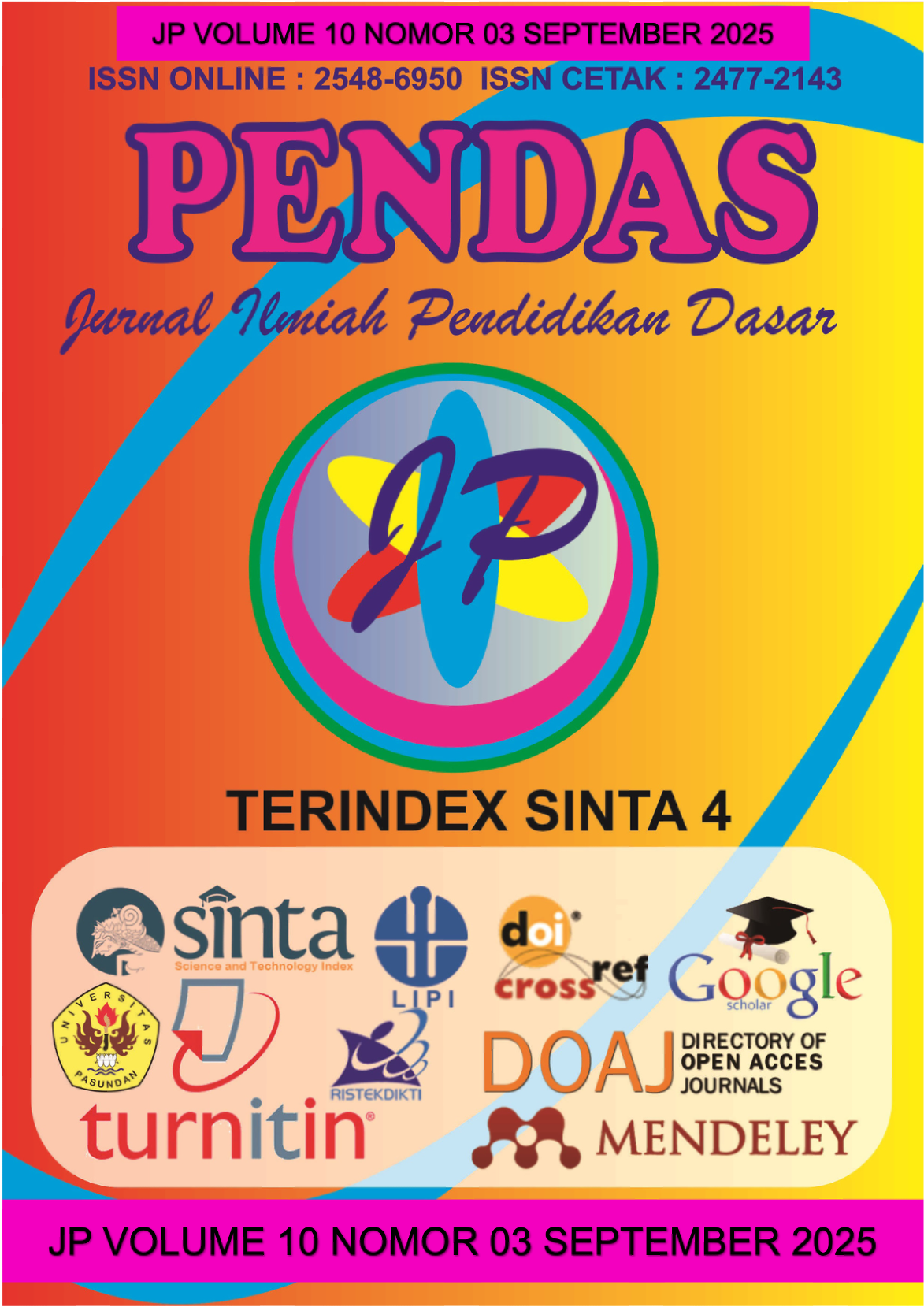EXPLORING TEACHER’S PERSPECTIVES ON THE WORDWALL PLATFORM FOR ENHANCING ELEMENTARY STUDENT’S ENGLISH VOCABULARY
DOI:
https://doi.org/10.23969/jp.v10i03.32087Keywords:
Digital Learning Tools, Gamification in Education, platform, WordwallAbstract
This study aims to explore elementary school English teachers’ perspectives on the use of the Wordwall platform to enhance students’ vocabulary acquisition, highlighting the urgency of integrating digital gamification in vocabulary learning. Employing a qualitative method with a phenomenological design, the research was conducted over one month and involved three elementary school English teachers from Mis Terpadu Muhammad Fahri in North Sumatra, Indonesia, who had direct experience using Wordwall in their classrooms. Data were collected through semi-structured interviews, participatory observations, and documentation, and analyzed using the Miles and Huberman model. The findings reveal four key themes: (1) Wordwall is user-friendly and easily integrated into daily teaching; (2) it increases students' motivation and engagement; (3) it significantly improves vocabulary mastery through interactive, repetitive game-based learning; and (4) teachers apply various strategies to integrate Wordwall effectively, although they face challenges related to internet access and time constraints. In conclusion, the Wordwall platform supports vocabulary learning not only by making it more enjoyable and meaningful but also by fostering student participation and retention. This study offers valuable insights for educators and curriculum developers by highlighting Wordwall as a practical and innovative tool that can enhance the effectiveness of English vocabulary instruction in primary education.
Downloads
References
Vision: Journal for Language and Foreign Language Learning, 9(1), 48–61. https://doi.org/10.21580/vjv9i14862
Dichev, C., Dicheva, D., & Irwin, K. (2020). Gamifying learning for learners. International Journal of Educational Technology in Higher Education, 17(1). https://doi.org/10.1186/s41239-020-00231-0
Dimyati, A. L., & Purwananti, Y. S. (2022). Kahoot In Teaching English Vocabulary for Junior High School. Seminar Pendidikan Dan Pembelajaran, 1160–1166.
Graves, M. F., Baumann, J. F., Blachowicz, C. L. Z., Manyak, P., Bates, A., Cieply, C., Davis, J. R., & Von Gunten, H. (2014). Words, words everywhere, but which ones do we teach? Reading Teacher, 67(5), 333–346. https://doi.org/10.1002/trtr.1228
Gulo, S. M. N. (2024). Analysis of Teacher Difficulties in Teaching Vocabulary at Elementary School. Progressive of Cognitive and Ability. https://doi.org/10.56855/jpr.v3i1.977
Hasram, S., Arif, F. K. M., Nasir, M. K. M., Mohamad, M., Daud, M. Y., Rahman, M. J. A., & Mohammad, W. M. R. W. (2020). Online Games for Primary School Vocabulary Teaching and Learning: A Literature Review. Creative Education, 11(11), 2327–2336. https://doi.org/10.4236/ce.2020.1111170
Hussein, A. S. (2024). The Role of Using Wordwall Games in Developing Students ’ English Language in Private Schools : Teachers ’ Perspective. 11(4), 141–168.
I. S. P. Nation, V. U. of W. (2022). Learning Vocabulary in Another Language (3rd editio). Cambridge University Press. https://doi.org/https://doi.org/10.1017/9781009093873
Juliana, J., Suci Amaniarsih, D., & Aqsal Ilham, M. (2024). Penggunaan Aplikasi Duolingo Dalam Meningkatkan Penguasaan Kosakata Berbahasa Inggris Siswa SMP Amalyatul Huda. Publikasi Pengadian Masyarakat, 3(1), 25–37. https://doi.org/10.22303/publidimas.v3i1.155
Kapp, K. M. (2012). the Gamification of Learning and Instruction: Game-Based methods and strategies for training and education. In Pfeiffer & Company.
KESMEZ-, A. (2021). Efl Students’ Vocabulary Learning Strategies and the Difficulties Faced By Them in Vocabulary Learning. International Journal of Language Academy, 36(36), 78–98. https://doi.org/10.29228/ijla.48703
Kim, D. (2020). Learning Language, Learning Culture: Teaching Language to the Whole Student. ECNU Review of Education, 3(3), 519–541. https://doi.org/10.1177/2096531120936693
Mathias, B., Andrä, C., Schwager, A., Macedonia, M., & von Kriegstein, K. (2022). Twelve- and Fourteen-Year-Old School Children Differentially Benefit from Sensorimotor- and Multisensory-Enriched
Downloads
Published
Issue
Section
License
Copyright (c) 2025 Pendas : Jurnal Ilmiah Pendidikan Dasar

This work is licensed under a Creative Commons Attribution 4.0 International License.














































